Poetry Writing Teaching Resources
Explore poetry writing in your primary English classroom with printable worksheets, poem templates, graphic organisers and more resources to teach students how to write a poem and get kids excited about the world of verse!
Created by primary teachers for primary teachers like you, the teaching resources in this collection are aligned with the Australian Curriculum, each printable and digital resource has undergone a careful review by a member of our expert teaching team.
You'll find editable versions to easily differentiate your instruction for individual students, plus a variety of options to make lesson planning easier this school year so your students can write haiku, acrostics, shape poems and more.
New to teaching students to write poetry or just looking for fresh and engaging ways to teach this portion of the English curriculum? Read on for a primer from our teacher team, including a look at some of the poetry types that kids love most.
Types of Poems for Kids to Help Teach Poetry Writing
With more than 100 different types of poems on bookshelves at your local library, it can be a challenge to pick just which types you should be teaching your students to write. Do you start with a basic rhyming poem? Challenge your year 6 students to tackle free verse? Bring out the acrostics for your year 3 class?
Take a breath! Our teacher team has compiled a list of some of the best poetry types for teaching kids how to write a poem.
1. Rhyming Poems
For many kids, rhyming poems are their very first experience with poetry. Appearing in popular children's books and nursery rhymes, these poems are a classic starting place for teaching kids to write poetry as you explore rhyme schemes and how to carry a rhyming pattern through a piece of writing.
Some rhyming patterns to explore in the primary years include:
- Alternate rhyme
- Rhyming couplets
- Enclosed rhyme
2. Limericks
Speaking of rhyming patterns, limericks are short poems at just 5 lines long, and they follow a predictable AABBA rhyming pattern.
Designed to be funny, this poetry type allows kids to bring out their silly sides as they're writing, which makes limericks a student favourite in any classroom.
3. Haiku
Another type of poetry that follows a predictable format, haiku are always 17 syllables, and they are always broken out in the same way:
- Line one — 5 syllables
- Line two — 7 syllables
- Line three — 5 syllables
First created in Japan, this popular poem type for kids allows young poets to practise their descriptive writing, as well as focusing on syllables.
4. Shape Poems or Concrete Poems
Have you noticed the array of shape poem templates in this teaching resource collection? These simple poems create a visual shape from words that are related to the theme of the poem, and they're another basic but fun poetry type for younger kids.
Teaching your students to write shape or concrete poems is a good way to encourage them to explore the relationship between the form of a poem and its content.
5. Acrostic Poems
Another type of poem with a distinct format, acrostic poems tend to open up kids' creativity. Without the pressure of creating rhymes, kids can write more freely!
Teaching How to Write Poetry
Learning how to write poetry is an exploration in creativity for students, and it can be incredibly freeing for kids as they learn that they can experiment and have fun with language!
Writing poetry can be a powerful tool for self-expression that lets our students learn to express their unique perspectives, building their confidence and self-esteem as they learn to value their own ideas and opinions.
Of course, plenty of learning benefits also tie back to English standards. Poetry writing helps kids build their literacy skills, including reading comprehension, vocabulary and grammar. It's key in teaching kids to recognise different literary devices, from metaphor and simile to alliteration and imagery, and giving them a chance to practise using them effectively in their own writing.
- Plus Plan
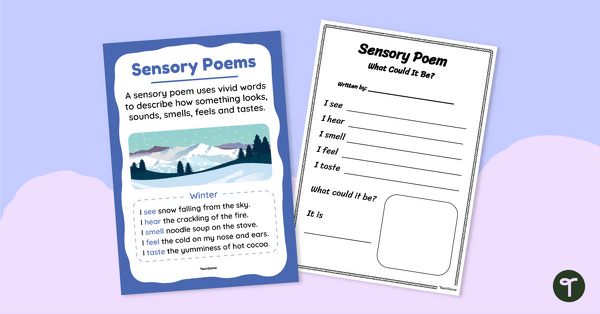
Sensory Poem Poster
A poster providing a definition and example of a sensory poem.
- Plus Plan
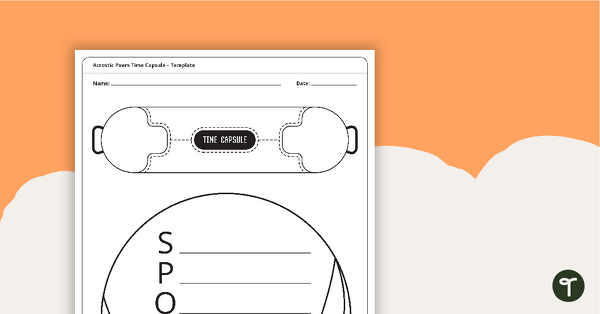
Acrostic Poem Time Capsule Template - SPORT
An acrostic poem template for primary school students in the early years.
- Plus Plan
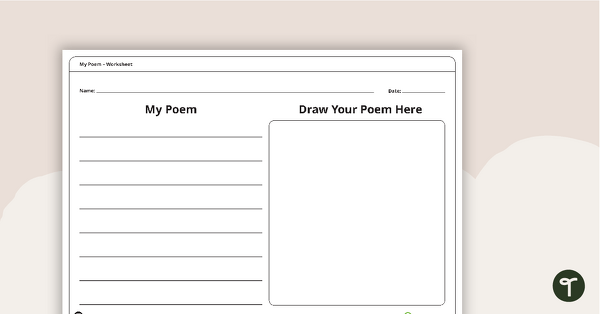
My Poem - Worksheet
A worksheet that helps younger primary school students scaffold their poems.
- Plus Plan
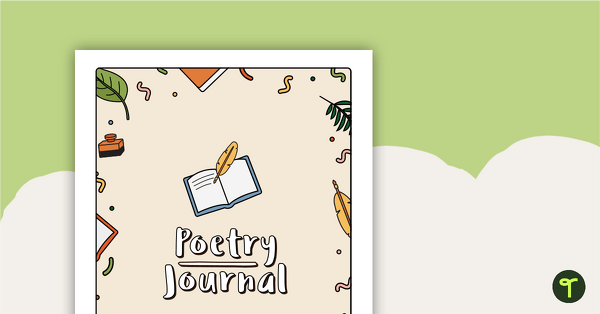
'Poetry Journal' Book Cover
A cover page or book cover to be used on your students' poetry books.
- Plus Plan
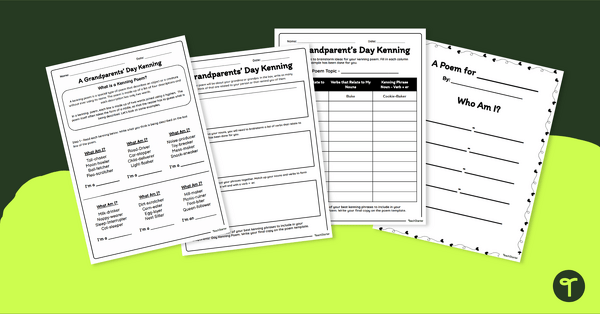
Create Your Own Grandparents' Day Poem Pack
Write a special Grandparents’ Day Poem with our printable Kenning poem worksheet pack.
- Plus Plan
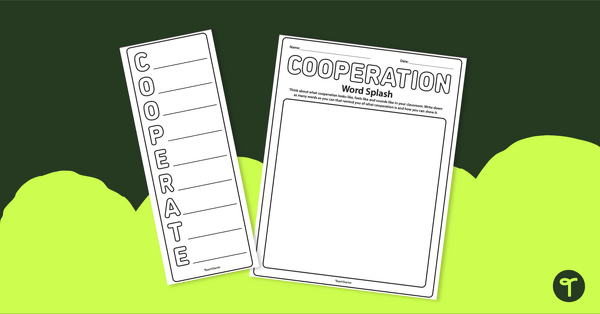
Cooperation Word Splash and Acrostic Poem
Discuss cooperation with your students and write an acrostic poem wih a printable word splash worksheet and poem template.
- Plus Plan
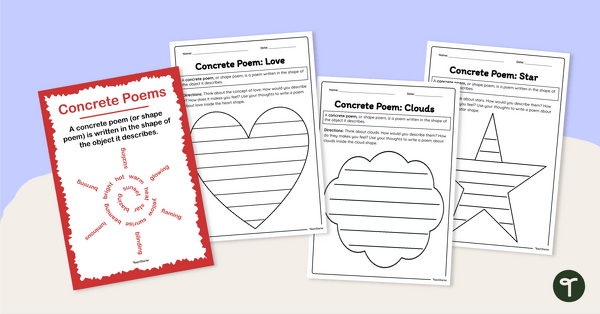
Concrete Poem Poster
A poster providing a definition and example of a concrete poem (or shape poem).
- Plus Plan
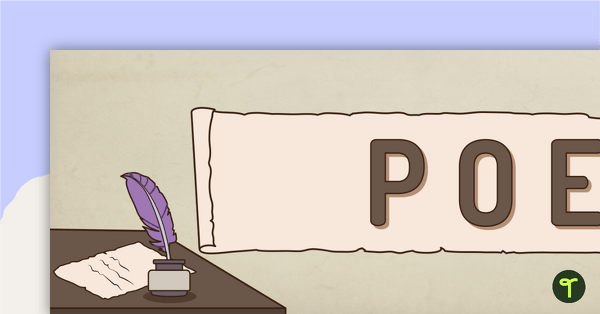
Poetry Display Banner
A classroom display banner to use on your 'Poetry' display board.
- Plus Plan
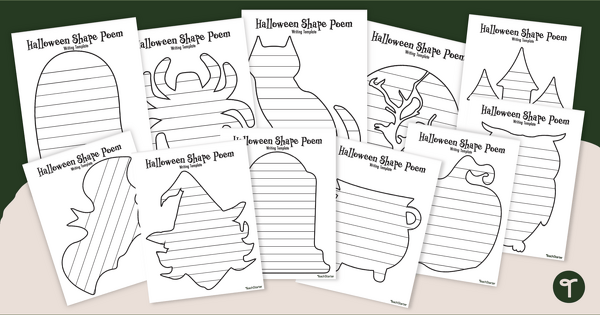
Halloween Shape Poem Templates
Inspire spook-tacular writing this Halloween with a variety of printable Halloween Shape Poem templates.
- Plus Plan
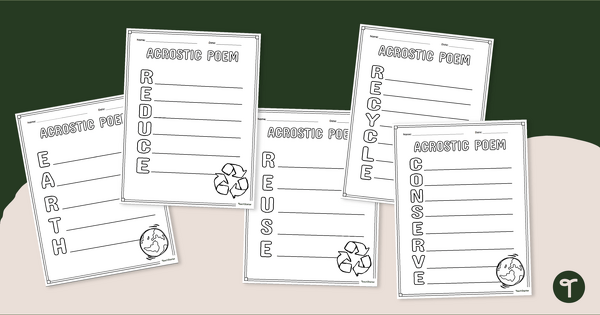
Earth Day - Acrostic Poem Template Pack
An acrostic poem template to use in the classroom to celebrate Earth Day and National Poetry Month.
- Plus Plan
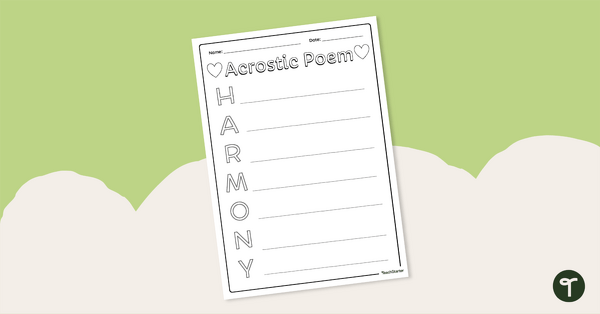
Harmony Acrostic Poem Template
Print an acrostic poem template for kids to celebrate Harmony Day or Harmony Week in your classroom.
- Plus Plan
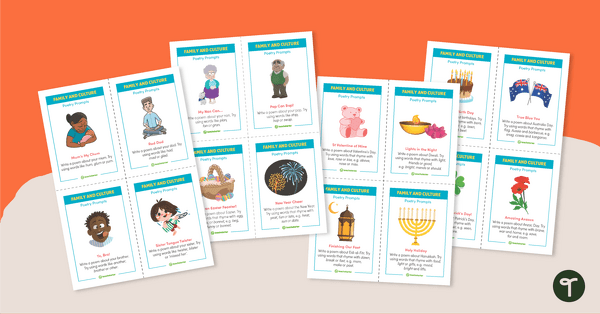
Family and Culture Poetry Prompts – Task Cards
A set of 16 illustrated poetry task cards to help students write about their family and cultural celebrations.
- Plus Plan
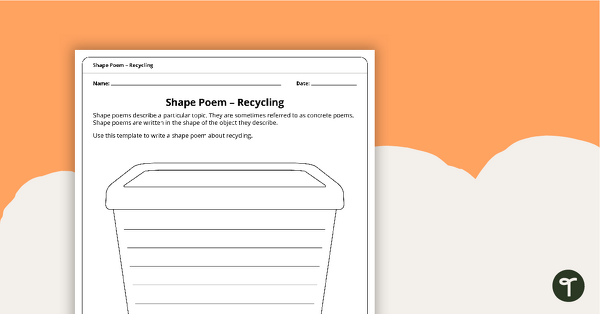
Shape Poem Template – Recycling
Practise writing a shape poem with this recycling bin template.
- Free Plan
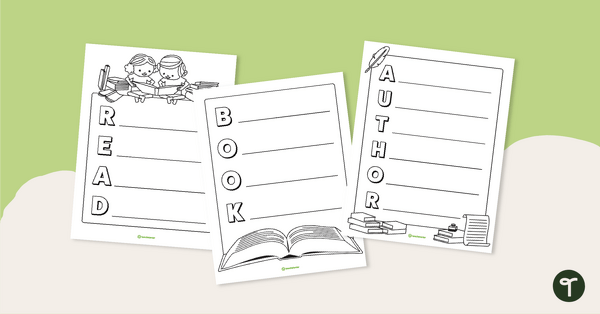
Reading Acrostic Poems – Templates
A set of 7 acrostic poem templates.
- Plus Plan
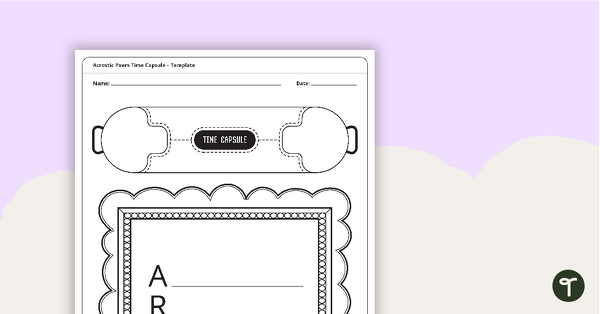
Acrostic Poem Time Capsule Template - ART
An acrostic poem template for primary school students in the early years.
- Plus Plan
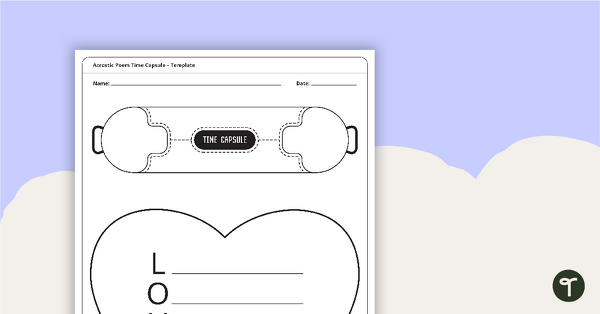
Acrostic Poem Time Capsule Template - LOVE
An acrostic poem template for primary school students in the early years.
- Plus Plan
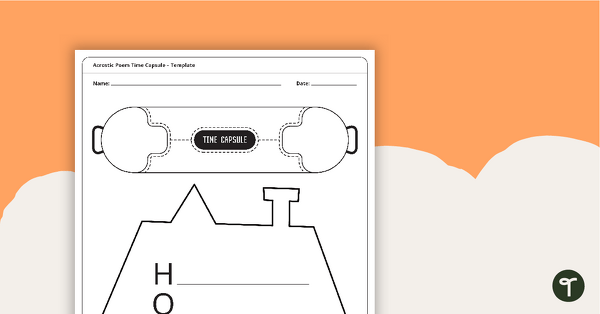
Acrostic Poem Time Capsule Template - HOME
An acrostic poem template for primary school students in the early years.
- Plus Plan
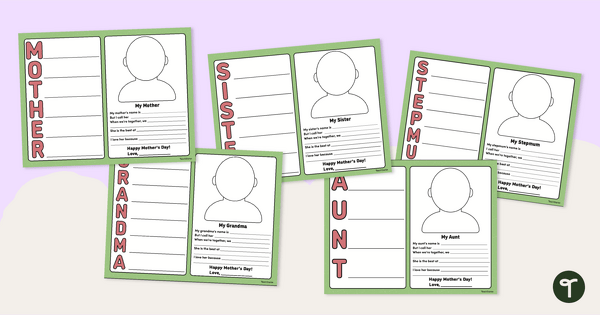
Mother's Day Acrostic Poem
Create a special keepsake for mum, grandma, aunt, or another special lady with a Mother’s Day acrostic poem template.
- Plus Plan
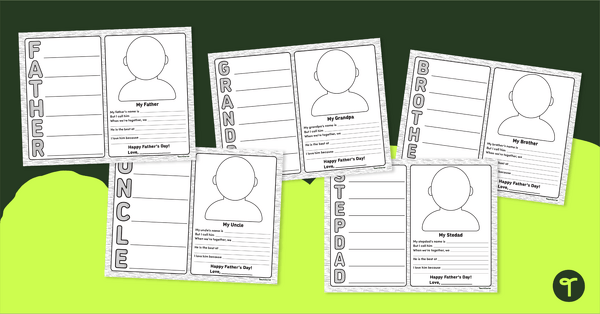
Father's Day Acrostic Poem Worksheet
Create a special keepsake for dad, grandpa, uncle or another special father figure with this Father’s Day acrostic poem template.
- Plus Plan
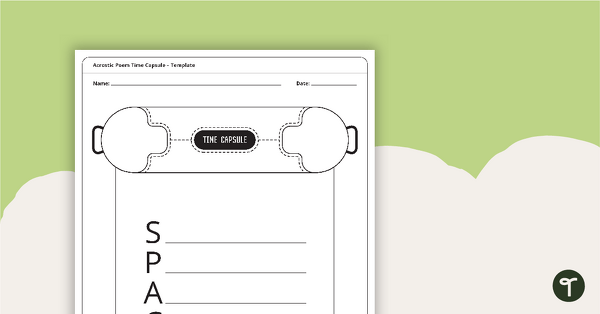
Acrostic Poem Time Capsule Template - SPACE
An acrostic poem template for primary school students in the early years.
- Plus Plan
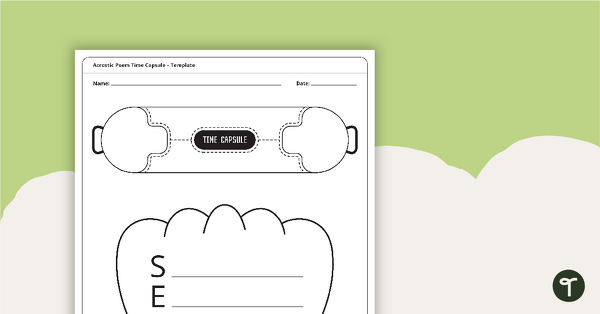
Acrostic Poem Time Capsule Template - SEA
An acrostic poem template for primary school students in the early years.
- Plus Plan
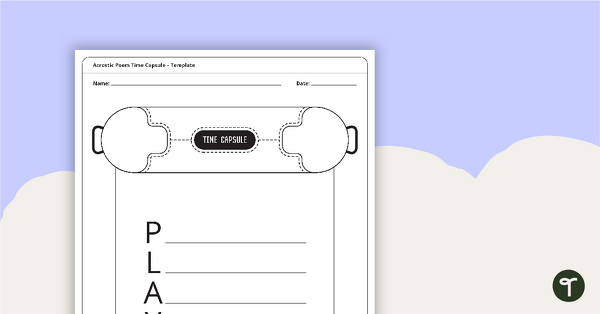
Acrostic Poem Time Capsule Template - PLAY
An acrostic poem template for primary school students in the early years.
- Plus Plan
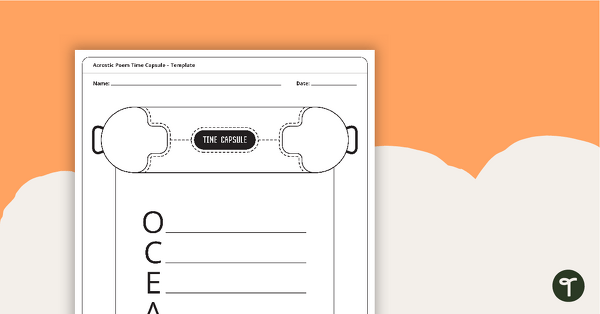
Acrostic Poem Time Capsule Template - OCEAN
An acrostic poem template for primary school students in the early years.
- Plus Plan
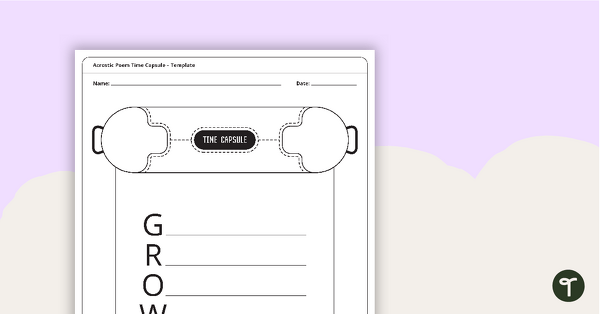
Acrostic Poem Time Capsule Template - GROWTH
An acrostic poem template for primary school students in the early years.
- Plus Plan
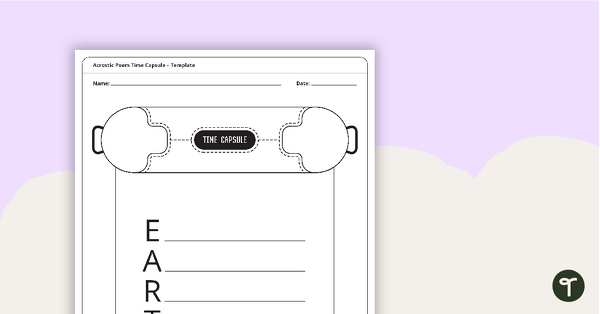
Acrostic Poem Time Capsule Template - EARTH
An acrostic poem template for primary school students in the early years.
- Plus Plan
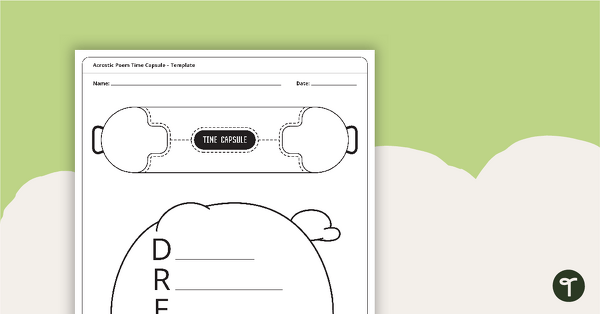
Acrostic Poem Time Capsule Template - DREAM
An acrostic poem template for primary school students in the early years.
- Plus Plan
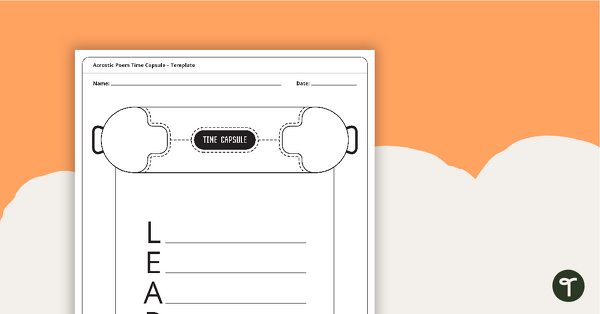
Acrostic Poem Time Capsule Template - LEARN
An acrostic poem template for primary school students in the early years.
- Plus Plan
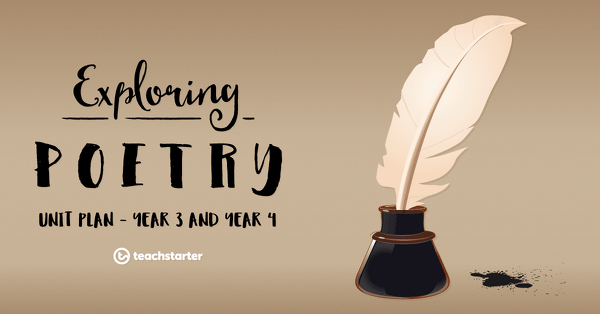
Planning and Writing a Narrative Poem
A 60 minute lesson in which students will plan and write a narrative poem which includes a setting, characters and a storyline.
- Plus Plan
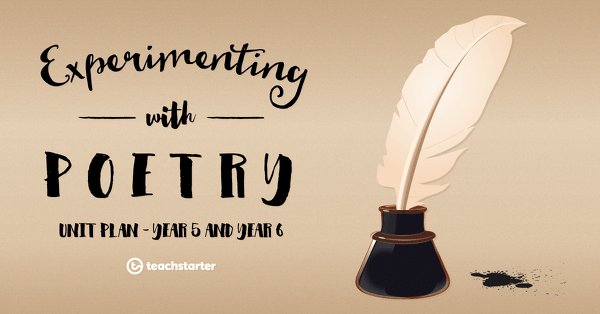
Humorous Poetry - Limericks
A 60 minute lesson in which students will plan and write a limerick.
- Plus Plan
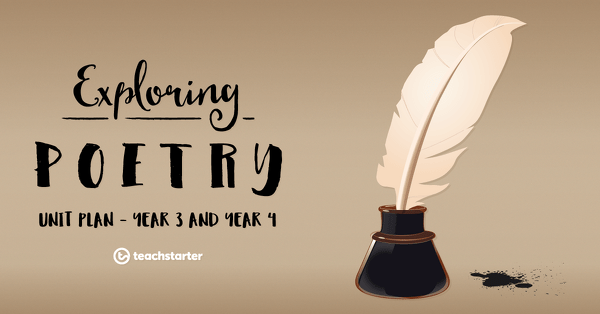
What is Poetry?
A 60 minute lesson in which students will develop a definition of poetry.
- Plus Plan
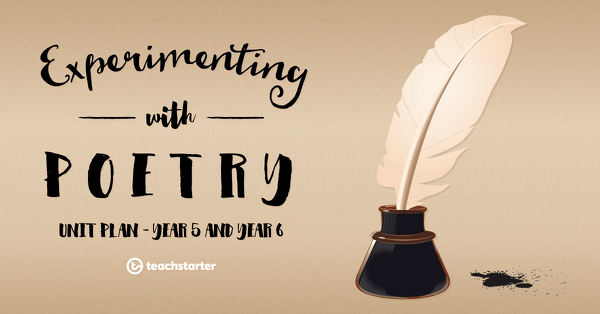
Narrative Poetry - Simple Ballads
A 60 minute lesson in which students will plan and write a simple ballad.
- Plus Plan
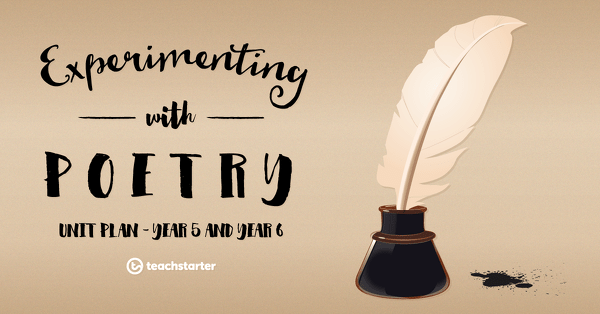
Concrete Poetry - Shape Poems
A 60 minute lesson in which students will plan and write a shape poem.